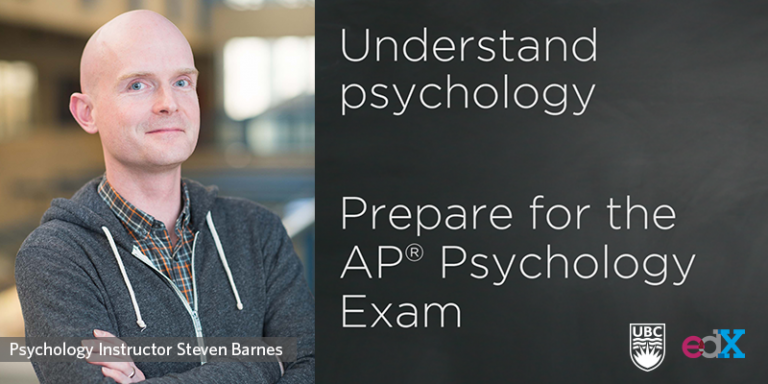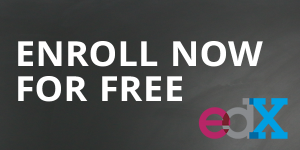

UBC Psychology Instructor Steven Barnes is delivering his award-winning instruction to students from over 150 countries. With a self-described eclectic approach to teaching, Barnes explores new ways of sharing knowledge by bridging storytelling and technology. For example, to help students learn science he developed chalkboard-based stop-motion animations and videos to animate the ideas he teaches.


The psychology MOOCs Barnes created are delivered through edX, an open source online learning platform. With 24 weeks worth of content, the courses include real-life psychology experiments, undergraduate interviews with UBC Psychology researchers, mini-lectures, and demonstrations of psychological phenomena. Students enrolled in the courses will study topics ranging from the history and research methods of psychology, to the neuroscience and psychology of the mind, to theories of motivation and emotion.
In this Q&A, Barnes shares his motivation for creating the MOOCs, what they offer, and how these courses prepare high school students for university.
Overall, what do MOOCs offer?
MOOCs are a unique mode of instruction and learning that have thrived in recent years. This is in part due to an increasing demand for free, flexible, open source, and high-quality learning experiences. Although MOOCs aren’t a replacement for face-to-face instruction, some MOOCs, like the ones I have developed, offer students more flexibility in their learning through a self-paced format. Students taking one or more of my MOOCs will be able to progress through each course at their own pace.
What do your psychology MOOCs offer?
First, they offer training for the AP® Psychology exam for students who might not have access to AP® Psychology courses through their high schools. Second, they offer free training for the AP® Psychology exam for students who can’t afford expensive preparatory courses or textbooks. Finally, these MOOCs offer free materials for AP® Psychology teachers to use in their face-to-face AP® Psychology high-school courses.
How can these courses prepare high school students for post-secondary?
By definition AP® courses are university level courses. So students who take all 6 of these MOOCs and do well will have learned the equivalent first year university psychology. High school students who subsequently write the AP® Psychology exam and get a 4 or 5 on it will get some form of credit in many universities.
What was your motivation for creating these MOOC?
Given the sheer amount of work involved in MOOC development, I actually think that anyone developing a MOOC is driven to a large degree by altruism. In addition, there is also the high-level of reach that MOOCs offer: in a typical UBC course, you can’t teach thousands of students at once from over 150 different countries. The idea of being able to reach and affect such a large number of students from such diverse backgrounds is of great appeal to me. In addition, I also wanted to show the world all the great work, both research and teaching, that goes on in our Department of Psychology at UBC.
Was it natural for you to design these courses?
The MOOC space is very different from the classroom space. It was actually a very steep learning curve for me, but I had a lot of support from seasoned MOOC developers like Gregor Kiczales, a Professor in UBC’s Department of Computer Science, and Jason Myers from Arts ISIT. But there are still limitations in the technology that one has to learn to accept when developing a MOOC. The level of interaction I am used to achieving through dialogue in a face-to-face classroom is difficult, if not impossible, to recreate in the MOOC space. In addition, it was difficult to learn how to use the video medium to it’s fullest. Thankfully I had the help of two very gifted UBC film students to help me out with that: Linnea Ritland and Olivia Sorley.
What is unusual about these courses?
I think one unique aspect is the amount of input that UBC students have had to the content development—both undergraduate and graduate students have contributed extensively to these MOOCs.
Can you touch on the approach you took when developing the courses?
I wanted these MOOCs to be engaging and fun. To do this, I took a couple of different approaches. First are the experimental demonstrations that mostly have me as the ‘guinea pig’ in the experiments—in general, we tried to make those experiments as humorous as possible. Second is the fact that UBC undergraduate students contributed substantially to the development of the MOOCs and this is reflected in the light-hearted and accessible nature of some of the interviews, demonstrations, and mini-lectures. Third, we had a great undergraduate student help with the creation of all the graphics for the MOOCs: Kimberly Nipp. We even incorporated stop-motion animation at several points in each MOOC—though time constraints did prevent us from generating as many stop motion animations as I might have liked.
Did you face any challenges developing the courses?
Many! One significant one is that, because one cannot know ahead of time what will be on the AP® Psychology exam, it is difficult as a course developer to know how much or how little material to cover. I ultimately decided to err on the side of aiming to over prepare students for the AP® Psychology exam by providing slightly more content than they might ultimately need. However, I think this is a win-win situation: What they don’t apply to their taking of the AP® Psychology exam, they can surely apply in their everyday lives and/or in other University-level Psychology courses they decide to take.
What’s next? Any more MOOCs?
I would like to convert the MOOCs into distance ed courses for PSYC 101 and PSYC 102 at UBC. That’s in the pipeline for development in 2017. In addition, I would like to continue adding and improving the MOOCs. For example, I would like to see additional resources added for AP® Psychology teachers who want to use these MOOCs in their classroom in a blended or flipped fashion.


